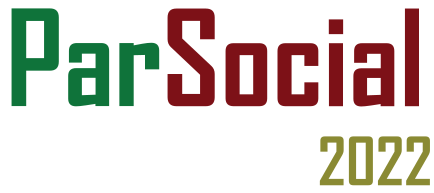Call for Papers
|
Computational methods to represent, model and analyze problems using social information have come a long way in the last decade. Computational methods, such as social network analysis, have provided exciting insights into how social information can be utilized to better understand social processes, and model the evolution of social systems over time. We have also seen a rapid proliferation of sensor technologies, such as smartphones and medical sensors, for collecting a wide variety of social data, much of it in real time. Meanwhile, the emergence of parallel architectures, in the form of multi-core/many-core processors, and distributed platforms have provided new approaches for large-scale modeling and simulation, and new tools for analysis. These two trends have dramatically broadened the scope of computational social systems research, and are enabling researchers to tackle new challenges. These challenges include modeling of real world scenarios with dynamic and real-time data, and formulating rigorous computational frameworks to embed social and behavioral theories while taking into account ramifications in relation to policy, ethics, privacy and other areas. This workshop provides a platform to bring together interdisciplinary researchers from areas, such as computer science, social sciences, applied mathematics and engineering, to showcase innovative research in computational social systems that leverage the emerging trends in parallel and distributed processing, computational modeling, and high performance computing.
Special Session: Modeling, Simulation and Analysis Techniques for Pandemics.This year we will invite papers for a special session on topics in computational social systems that tackle the issues related to pandemics, with a focus on COVID 19. COVID 19 has revealed shortcomings in modeling and simulation techniques for a fast moving, global pandemic which can provide time bounded analysis and predictions. The need of the hour is a new set of cutting edge l techniques that go beyond predicting the spread of the contagion and also analyze and predict the concomitant effects on societies including social, economic, heath, political and other effects. COVID 19 has also revealed vulnerabilities in existing infrastructure and the need to overcome these vulnerabilities in multiple areas including health policies, transportation, community wellness, economic vitality, race relations, and political leaning. This pandemic has also been unique as the large amount of data and information available for researchers, has required many to turn to parallel and distributed processing methodologies and techniques. ParSocial, as such, can provide a platform for researchers grappling with these research questions to present their work. Topics include, but are not limited to:
Social Computing Algorithms
|
Large-Scale Modeling and Simulation for Social Systems
|
ApplicationDomains of applications include but are not limited to:
|

